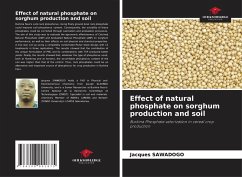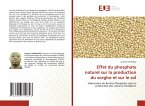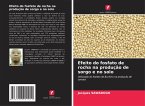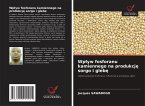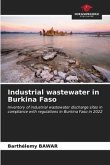Burkina Faso's soils lack phosphorus. Using finely ground local rock phosphate could improve soil phosphorus content. Consequently, the solubility of these phosphates could be corrected through calcination and acidulation processes. The aim of this study was to evaluate the agronomic effectiveness of Calcined Natural Phosphate (CNP) and Acidulated Natural Phosphate (ANP) on sorghum performance, as well as their effects on soil physical and chemical properties. A trial was set up using a completely randomized Fisher block design with 13 treatments in three replications. The results showed that the contribution of the unique formulation of PNC and its combinations with TSP produced better yields. Finally, the results showed that, whatever the type of phosphorus used, both at flowering and at harvest, the assimilable phosphorus content of the soil was higher than that of the control. Thus, rock phosphates could be an alternative and important source of phosphorus for crop productionin Burkina Faso.
Bitte wählen Sie Ihr Anliegen aus.
Rechnungen
Retourenschein anfordern
Bestellstatus
Storno

